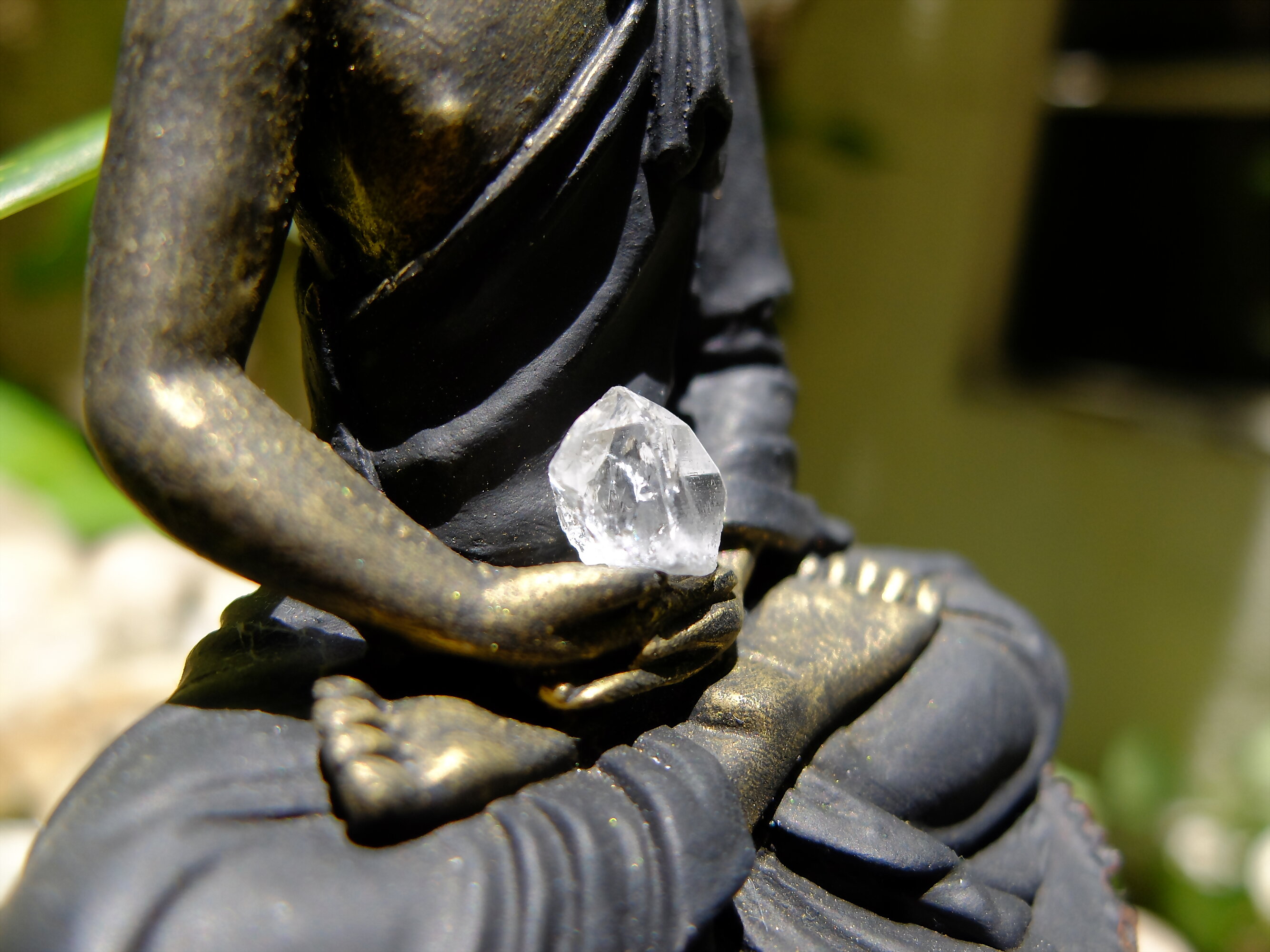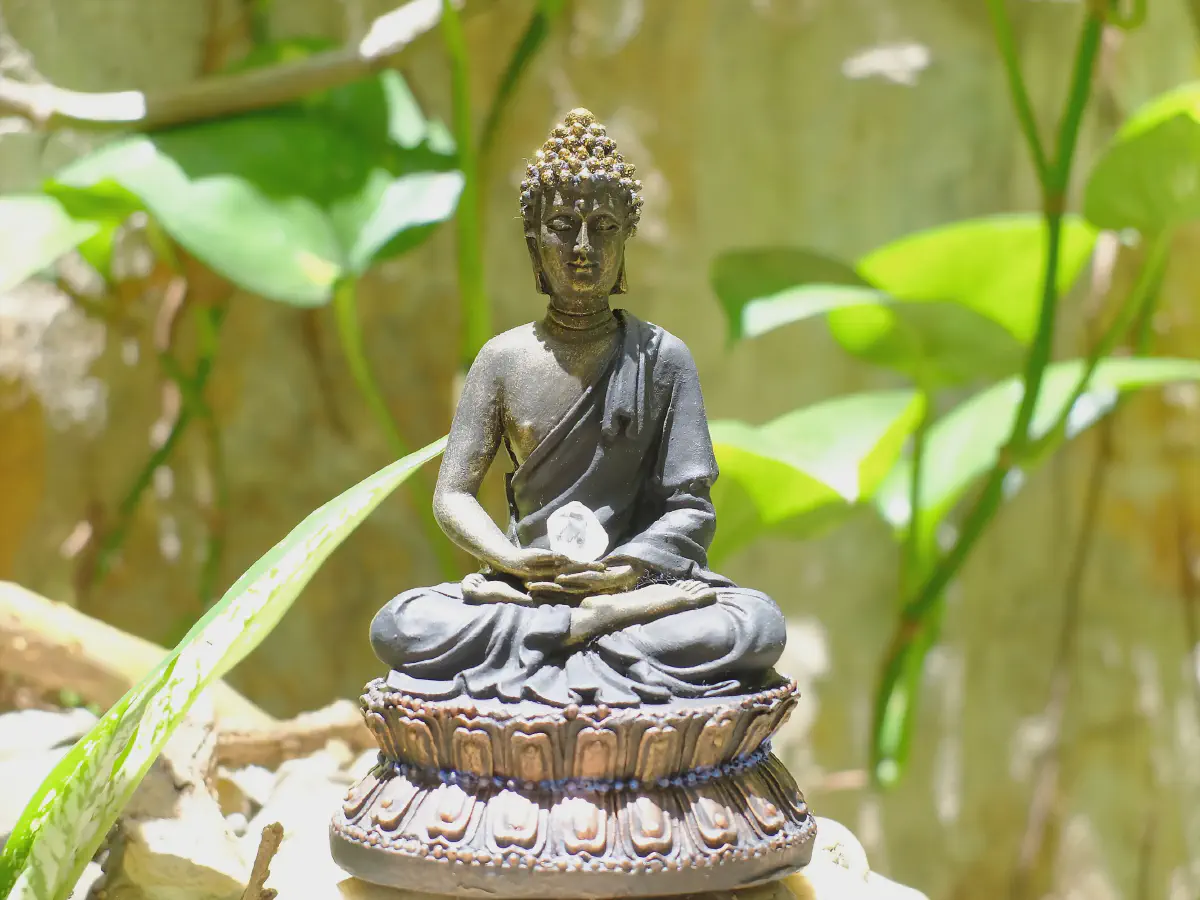Oṃ Āḥ Hūṃ Vajra Guru Padma Siddhi Hūṃ #
Tibetan mantras are a powerful form of prayer due to the amount of information they contain in a single phrase.
When one of these mantras is intended to be recited, it must be done with full awareness of its meaning in order to receive the knowledge it contains and be benefited by it. Otherwise, it would become a series of meaningless sounds that cannot then contribute anything. Interestingly, Western society, with its culturally scientific emphasis, is accustomed to treating spiritual topics with total ignorance and sharing topics lacking in information.
It must be emphasized that a mantra does not possess magic in itself nor will it alter reality; its power lies in two fundamental parts: the first is the correct transmission of the information it contains, and the second is the lived experience of that knowledge, in which the practitioner must immerse themselves in that state, integrating it and making it part of themselves, so as to release all its power upon that person.
Padmasambhava #
The Padmasambhava mantra is one of the most well-known and powerful mantras in Tibetan Buddhism. Padmasambhava was an enlightened master who was born in India in the 8th century and is considered the founder of Tibetan Buddhism.
The meaning of each word #
This is the famous mantra of Padmasambhava, which can help one to attain enlightenment. Here are its definitions:
Oṃ Āḥ Hūṃ #
It is constructed with symbolic meanings:
- Om is the primordial sound, the sound of reality and the universe, representing the principle of enlightenment.
- Ah means expression or evoke, it is the manifestation.
- Hum is the manifestation of enlightenment in the individual; its word also has similarity with the meaning “I”.
In summary, this first part of the mantra means “universal enlightenment is born and expresses itself upon my being”
Vajra #
It means thunderbolt and diamond; the implication in the mantra is that the thunderbolt is the irresistible force, while the diamond is an indestructible object that can cut anything, referring to “reality,” the false illusion we have of it, it is the wisdom that grants a mirror. Its meaning represents the energy of the enlightened mind.

Guru #
It is the wise teacher, the one who teaches and guides us towards our goal.
Padma #
It means lotus, it is a symbol of purity and enlightenment, as it grows in the mud but is not stained and remains pure in its entirety; it is a symbol of the enlightened mind, and it is said that Padmasambhava was born from a lotus or that when he was a child, lotuses grew behind his footsteps. Its meaning in the mantra is that despite the imperfections or evils that may exist in the world, the enlightened mind remains pure.
Siddhi #
It refers to the achievement of supernatural powers, suggesting that the enlightened mind acts differently but always wisely.
Hūṃ #
Again, it relates to the present individual.
Meaning of the Mantra #
The true meaning does not lie so much in a final phrase but in the correct understanding of each of its elements; a powerful exercise consists of re-reading, and even researching each of its meanings and elaborating a concept of the message the mantra intends to transmit. Once done, repeat the exercise 2 more times, re-understanding each of its meanings and elaborating a final message concept, you will observe that the 3 results can be quite different; for this reason, its powerful message cannot be limited to a single concept, and it is better to recite it by internalizing each of its meanings.
At this point, I invite you to perform the exercise so you can share your versions with other people in the comments.
The next time you recite the mantra, pronounce each word slowly and with full awareness of its meaning, and you will see how it then has a powerful impact on you.

